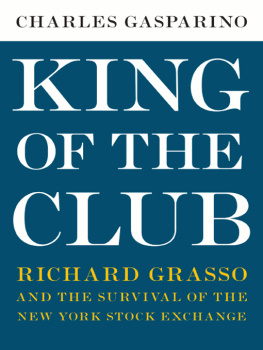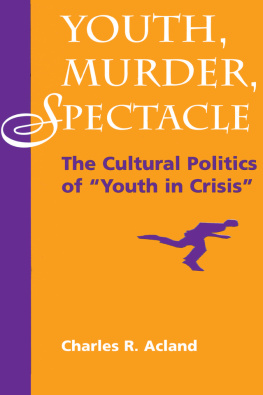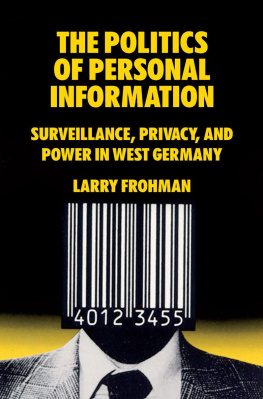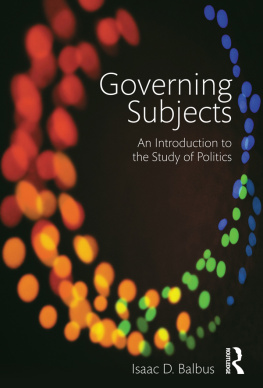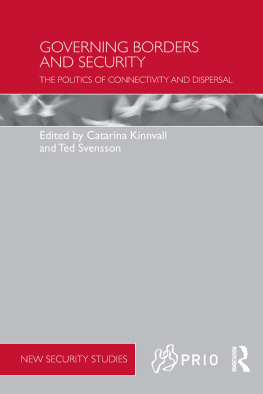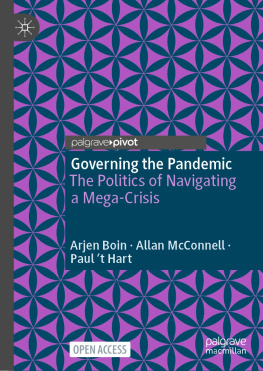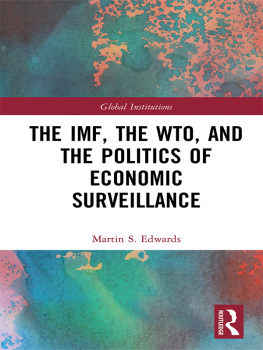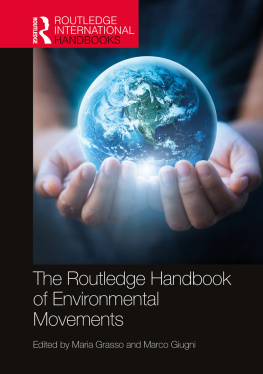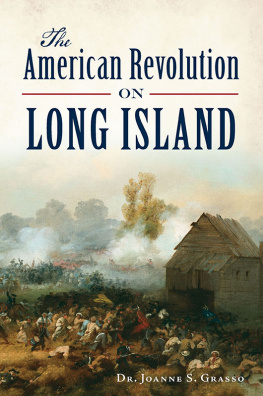Governing Youth Politics in the Age of Surveillance may be one of the best books available documenting and analysing how the war on youth has become an international issue. Global in its reach, intellectually brave, and theoretically unsettling, this is a book that everyone should read if they are concerned about what is happening to youth in a world in which authoritarianism is on the rise.
Henry Giroux, Professor for Scholarship in the Public Interest, McMaster University, Canada
This timely edition of critical essays analyses political (re)action and resistance from young people to the growing inequality and injustices of neoliberal societies, and the states intensified effort at suppressing them through increased surveillance.
Paddy Rawlinson, Associate Professor of International Criminology, Western Sydney University, Australia
Mai 68, Puerta del Sol, Chilean, Maple and Arab Springs Youth politics has always been a driving force of democratization and emancipation. The indispensable Grasso and Bessants Governing Youth Politics in the Age of Surveillance sheds light on evolving strategies from governments that sacralise youth but penalize young people. Truly essential!
Marie-Christine Doran, Associate Professor, School of Political Studies, University of Ottawa, Canada
Commitments in many countries to strengthening the political participation of young people, to combat the so-called democratic deficit, have been paralleled by the growth of ubiquitous surveillance of that behaviour. Grasso and Bessants important text documents these developments and demonstrates the importance of remaining on our guard, distinguishing the warm rhetoric of youth participation from the cold realities of state and non-state intervention and control.
Howard Williamson CBE CVO, Professor of European Youth Policy, University of South Wales, UK
This book aims to debunk and add alternative and progressive perspectives, to the response of young people as they broaden and deepen their political and civic engagement under the stronghold of restricted government policies of surveillance and criminalization. It is a narrative that must be told and there is no one better to tell it.
Dana Fusco, Professor of Teaching Education, City University of New York, USA
This book provides important insights into contemporary youth oriented groups involved in various kinds of political dissent. A particular strength is the rich breadth and depth of the cases which collectively provide timely insights into how campaigners are mobilizing across the world and how state institutions and other agents of power are responding.
Dominic Wring, Professor of Political Communication, Loughborough University, UK
Governing Youth Politics in the Age of Surveillance
Drawing on case studies from around the world, contributors to this groundbreaking book explore a major contemporary paradox: on the one hand, young people today are at the forefront of political campaigns promoting social rights and ethical ideas that challenge authoritarian orders and elite privileges. On the other hand, too many governments, some claiming to be committed to liberal-democratic values, social inclusion and youth participation are engaged in repressing political activities that contest the status quo.
Contributors to this book explore how, especially since 9/11, governments, state agencies and other traditional power holders around the globe have reacted to political dissent authored by young people. While the need to enhance youth political participation is promoted, the cases in this book document how states are using everything from surveillance, summary offences, expulsion from universities, gag laws and antiterrorism legislation, and even imprisonment to repress certain forms of young peoples political activism. These responses diminish the public sphere and create civic spaces hostile to political participation by any citizen.
This book forms part of The Criminalization of Political Dissent series. It documents and interprets the many ways contemporary governments and agencies now routinely use various techniques to repress and criminalise political dissent.
Maria T. Grasso is Professor at the Department of Politics, University of Sheffield, United Kingdom. She is the author of Generations, Political Participation and Social Change in Western Europe (2016) and co-editor of Austerity and Protest: Popular Contention in Times of Economic Crisis (2015). Her research focuses on political sociology and political engagement.
Judith Bessant is Professor at RMIT University, Melbourne, Australia. She is widely published with books in policy, sociology, politics, youth studies, media studies and history, and has worked as an advisor for governments and non-government organisations. In 2017, she became a Member of the Order of Australia for her significant service to education as a social scientist, advocate and academic specialising in youth studies research.
The Criminalization of Political Dissent
Series editor: Professor Judith Bessant
RMIT University, Melbourne, Australia
This challenging new book series explores the way governments since 9/11 from across the political spectrum intensified their efforts to criminalize both traditional and new forms of digital political dissent. The series will feature major contributions from the social sciences, law and legal studies, media studies and philosophy to document what happens when governments choose to regard activists campaigning for increased government transparency and accountability, environmental sustainability, social justice, human rights and pro-democracy as engaging in illegal activities.
The book series explores the legal, political and ethical implications when governments engage habitually in mass electronic and digital surveillance, outlaw freedom of movement real and virtual public assembly and prosecute digital activists. The books in this series are a must read for anyone interested in the future of democracy.
Series titles include:
Forthcoming:
Governing Youth Politics in the Age of Surveillance
Edited by Maria T. Grasso and Judith Bessant
Shooting the Messenger: Criminalising Journalism
Authored by Andrew Fowler
First published 2018
by Routledge
2 Park Square, Milton Park, Abingdon, Oxon OX14 4RN
and by Routledge
711 Third Avenue, New York, NY 10017
Routledge is an imprint of the Taylor & Francis Group, an informa business
2018 selection and editorial matter, Maria T. Grasso and Judith Bessant; individual chapters, the contributors
The right of Maria T. Grasso and Judith Bessant to be identified as the authors of the editorial matter, and of the authors for their individual chapters, has been asserted in accordance with sections 77 and 78 of the Copyright, Designs and Patents Act 1988.
All rights reserved. No part of this book may be reprinted or reproduced or utilised in any form or by any electronic, mechanical, or other means, now known or hereafter invented, including photocopying and recording, or in any information storage or retrieval system, without permission in writing from the publishers.




